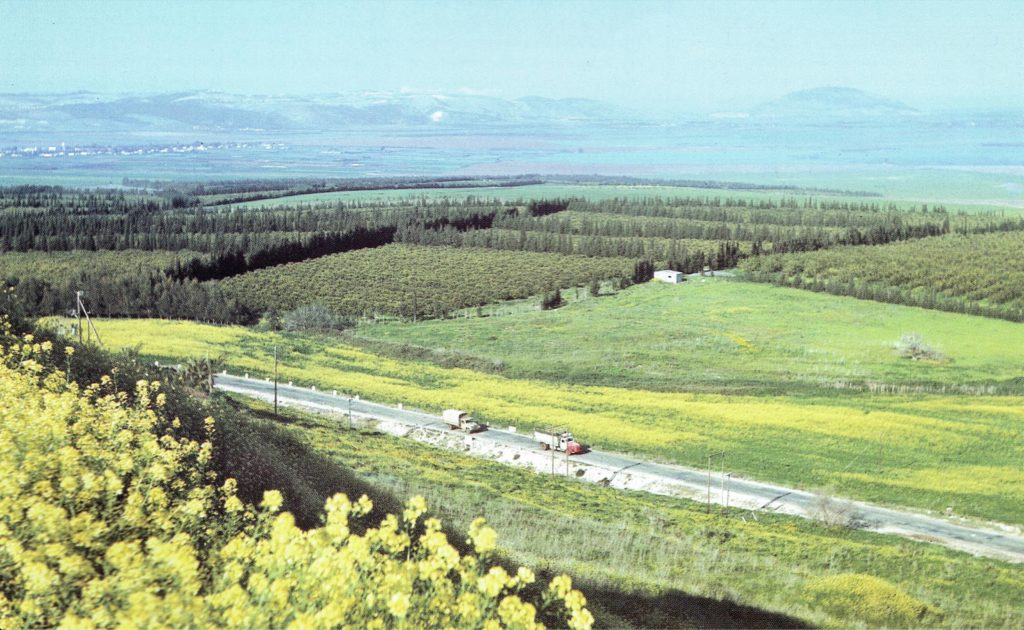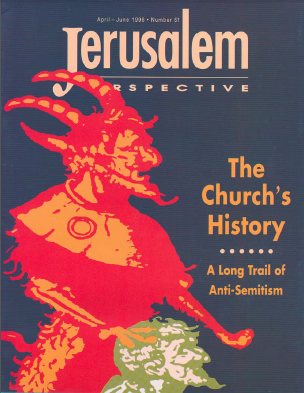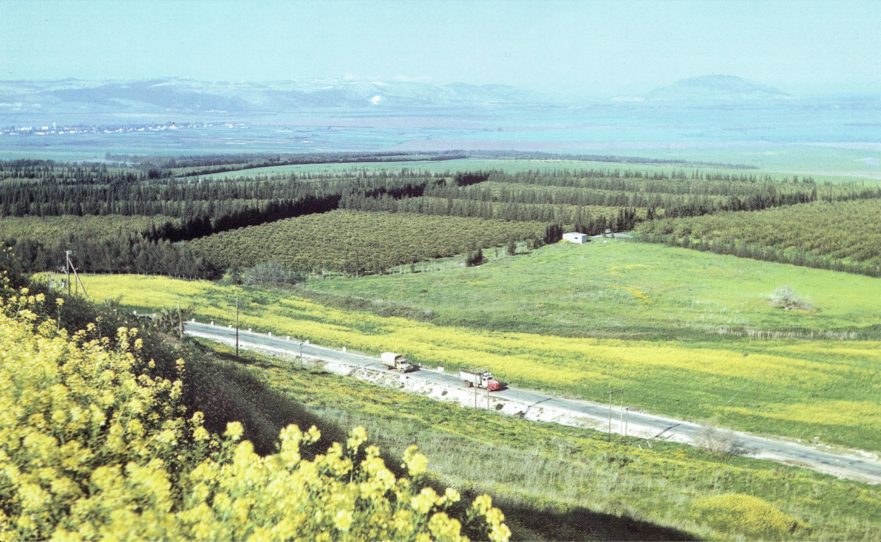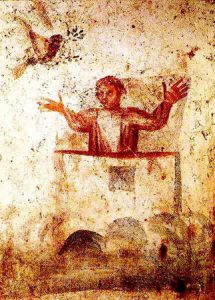
Fascination with the Jewish people, the reborn nation of Israel, and the land of Israel, seems to be escalating in churches. Throughout the English-speaking world Christian preachers and Bible teachers can be heard on radio and television unlocking cryptic passages from Ezekiel, Daniel and Revelation. Their publications occupy the shelves of nearly every Evangelically oriented bookstore. Purveyors of apocalyptic sensationalism, they ascribe to the Jewish people and the land central roles in the impending, divinely ordained finale of human history.
Echoing these ideas, many Christians believe that the Jews must immigrate to their homeland in fulfillment of biblical prophecies. The return of the Diaspora communities to Israel is a salient feature of much Christian theology concerning the end of the age. According to this view, once the ingathering of the exiles is complete, one can be certain that the great and final battle—the battle of Armageddon, which will precipitate Christ’s glorious return—is close at hand.
Preoccupation with Christ’s second coming underlies much professed love for and interest in the Jewish people and their homeland. I find this “love” and “interest” cause for concern. As it is popularly depicted, the eschatological drama culminating in the Parousia has Jews in the land of Israel playing the lead role. Embedded deep in the script of this drama, however, the land is ravaged and Jews slaughtered before Christian expectations are fulfilled.
I am reminded of Jesus’ rebuke to John the Baptist (Matt. 11:4-6). Jesus tells John to rewrite his theology concerning the messianic task. John had erred on a point, namely, what the Messiah would do once he appeared. John thought that the Messiah would inaugurate an outpouring of divine retribution against the wicked; but Jesus had come to usher in a great redemptive movement fueled by God’s grace and characterized by restoration, healing and hope. John had overlooked Jesus’ role as redeemer, and only saw him as the divinely appointed judge.
Could there be errors in our theology, too? Could the dazzling scenarios—the battle of Armageddon, the rebuilding of the temple in Jerusalem, and Christ’s thousand-year reign—be inaccurate? Jesus explicitly said that people would be living their lives as usual—eating, drinking and marrying (Luke 17:27)—when the divinely appointed eschatological judge, to whom Jesus referred as the Son of Man, suddenly comes (cf. Matt. 24:36-42; Dan. 7:13). There are no unfulfilled prerequisites holding back this terrifying, awesome event. As I heard Dr. Robert Lindsey emphasize, when Noah entered the ark, the flood unexpectedly swept the earth. When Lot hastily departed Sodom, fire suddenly fell from heaven (Luke 17:26-30). The Son of Man can return tomorrow, or he may come now!
The growing fixation on eschatology is unsalutary. It distracts us from Jesus’ teachings. It inhibits us from living a life characterized by wisdom, foresight and commitment to long-term goals. Had we devoted ourselves to Jesus’ unique approach to Torah within the context of Second Temple-period Judaism, this eschatological fixation may not have assumed such prominence in our theology.
If eschatological concerns are not the most salutary motive for showing interest in Israel, then what changes in our thinking should be made? Christian interest in the Jewish people, their land and faith should stem from an appreciation for what Judaism and the Jewish people have given us, and from the realization that the Jewish community remains a great reservoir of biblical learning from which we can draw to enrich our faith. Viewing our relationship to the Jewish community in this way is the truest foundation on which genuine love for the Jewish people can rest. The Jewish people have given us nothing less than our faith in God. Their Bible has become our Bible; their prophets have become our prophets; and their salvation history has become our history. The Jewish conception of God is essentially our conception of God. This is the reason that Judaism continues to be invaluable to Christianity. By reading Jewish authors, we can gain insights into God’s grace, love, mercy, compassion and justice. And of course, comparative reading of early rabbinic texts so often provides the data necessary for clarifying the words of Jesus.
The descendants of Abraham, Isaac and Jacob are returning to their ancestral homeland in unprecedented numbers. The State of Israel is a reality. Hebrew is a flourishing, living language. Archaeologists have been excavating throughout the region for decades. What are the implications for Jesus’ twentieth-century disciples? Should they read more vigorously the book of Revelation and excerpts from Ezekiel and Daniel in order to excel in “end time” prophecy? Unfortunately, this seems to be one of the more common responses.
Such behavior robs us of invaluable opportunities to enrich our faith. Talmudic and midrashic texts constitute the most valuable corpus of literature for comparative study of the synoptic gospels. Visiting the sites that Jesus once frequented contextualizes the gospel stories. Studying Hebrew is an excellent way to gain insight into Jesus’ sayings. Reading what Jewish scholars have written about the Bible and God can lead to a broadening of theological horizons. These are healthy reasons for being interested in the Jewish people and the land of Israel. Though they can never compete with the spectacular, eschatological scenarios of popular radio and television preachers, they are the right reasons, and in time, they will lead those who are motivated by them to a greater degree of spiritual maturity.






